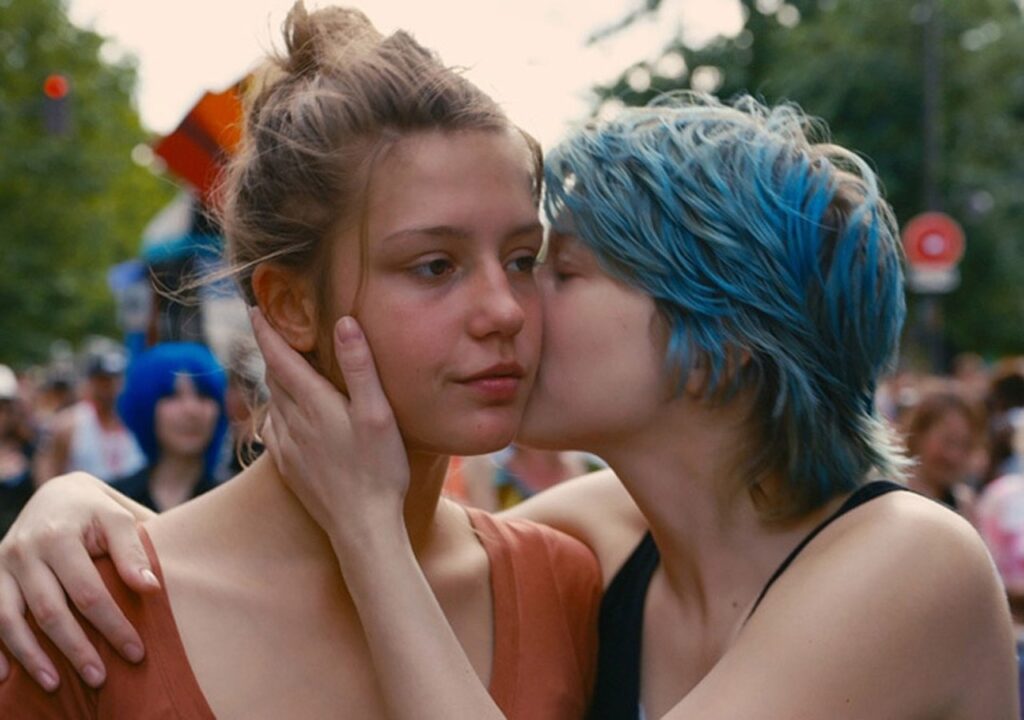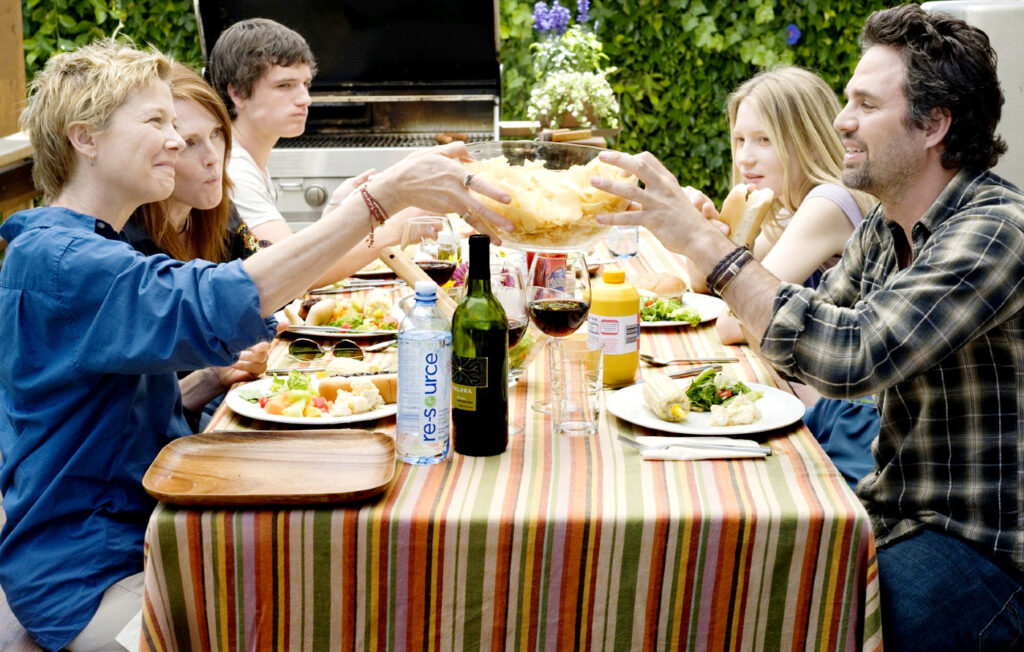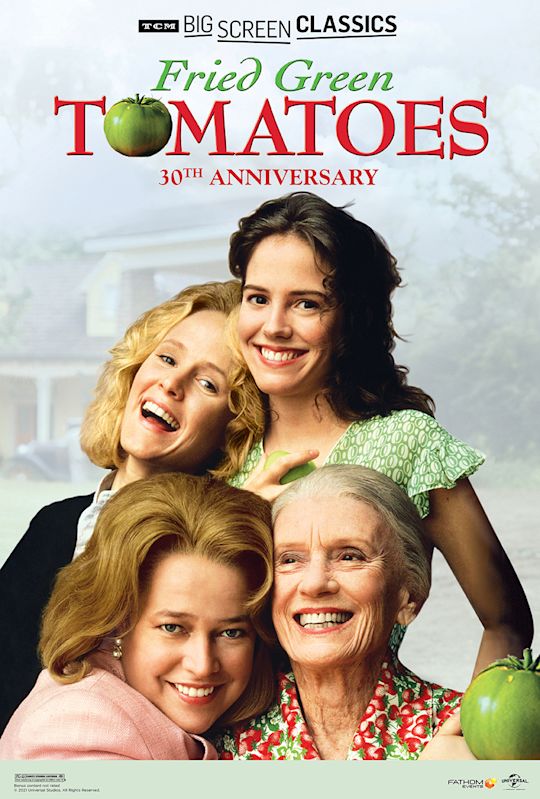Fabulous food scenes in queer films
Fried Green Tomatoes, the film version Fanny Flagg’s classic lesbian love story, turns 30 this month, and to help Turner Classic Movies celebrate this moment, QueerForty is serving up the top twelve queer food moments on film, free of spoiled milk and spoiled plots!
The Family Dinner Table: here is where the truth always comes out! While the joke might be to yell “Meatloaf again!” when Dr. Frank-N-Furter pulls the tablecloth off in The Rocky Horror Picture Show, the truth is it speak to a far reaching film trope: Dinner and a Show. The Bird Cage is another example: it’s mom and dad meet dad and “mom” and drag show and Hank Azaria as penis dusting houseboy. But food isn’t just about revelations, it’s a love language.
Connections in the Kitchen: The classic gay romance, Big Eden, finds a city boy pulled back into his rural hometown to care for his ailing grandfather.
As country folks do, they help by delivering food — bad food. Local store owner Pike Dexter intervenes by learning how to cook just to impress the crush he’s held for the boy that went away. And yes, the dinner and a show trope shows up here too, but with Hallmark satisfaction. Likewise, Eat with Me finds an estranged Asian American mother and her gay son forced back together when the family restaurant closes. One of the things that drove them apart, brings them back together.
And, keep an eye out for George Takei! The Cakemaker takes on queer grief as a widow comes to know her deceased husband better through his male lover.
The two widowed lover of the bisexual man discover that they had more in common than a man when she lets the non-kosher baker into her kosher only kitchen in Jerusalem and thus risking her kosher standing. With the holy month of Ramadan coming to a close on May 11, Breaking Fast puts food, religion, and love in conversation. Here abstaining from food then coming together for the breaking of a fast provides hope for a world where homophobia and Islamophobia still run rampant.
Food Porn: There’s something erotic about food; if we didn’t learn this in Lady and the Tramp as children, we learned it in 9 1/2 weeks as adults. Spaghetti, however, is not as innocent as Lady and the Tramp may have led us to believe — take lesbian love story, Blue is the Warmest Color, for example. Every bite of saucy noodle communicates love or lust or desire — and the fact that this is in plain sight only adds to sex appeal.

While the spaghetti sex might be hiding be obscured behind family dinner, “Sugar Daddy” from Hedwig and the Angry Inch lays it all bare. Hedwig has been denied much under communism, and when the singing starts I can’t help but flashback to the 90s: “I smell sex and candy!” While Luther, Hedwig’s sugar daddy, does manage to free her from the wrong side of Berlin, it is at the cost of leaving something behind.
But in recent memory, what food is more sexual than the peach? If not for the emoji with its siblings, the eggplant and the cherries, then for Call Me By Your Name. In the 90s young men started contemplating the sexual possibilities of apple pie; now it seems the youth may be corrupted by the yonic quality of stone fruit, throwing the connotations of “peach nectar” into question when the older graduate student reaches for his professor’s son’s spent and fuzzy fruit.

Overindulgence: Too much of a good thing? Sometimes. That erotic pasta dinner got the director of Blue is the Warmest Color as many read the knife licking, lip smacking, and plate heaping as exploitative. But what about all that wine in The Kids Are All Right? As the adults in the nontraditional family talk and share and drink, what does the wine become? Life blood? Shared fluids? A meaning of connecting? Or a means of coping? Hopeful, yes; however, it does call into question who the “kids” might be and who is in need of the reassurance of the title. Girls Will Be Girls, the drag queen comedy, on the other hand, takes a jab at Varla’s overeating any chance they can get — and there are plenty of opportunities!

Fried Green Tomatoes manages to bring all these tropes together. Love and acceptance occur around the Whistle Stop Cafe. Lies are told, secrets kept (or cooked away), and hate is warded off. Like the recipes in the back of the novel, the hope the Whistle Stop provides is shared. And without saying too much, if you haven’t seen it, remember not to eat the BBQ and that love is proven with honey.





